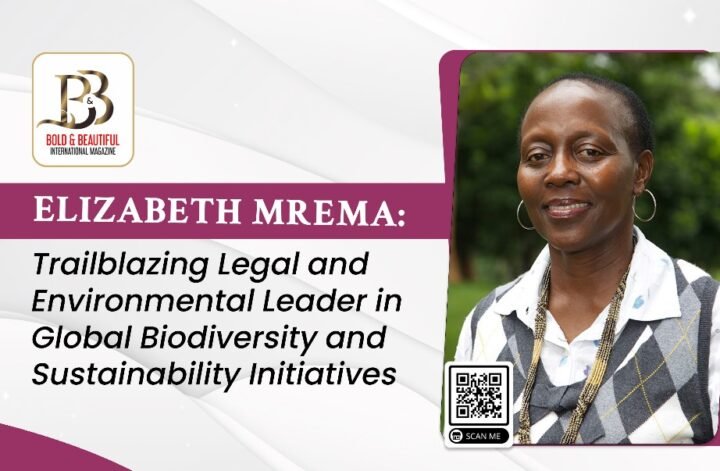Aigboje Aig-Imoukhuede has a new headline in his long-running effort to prove that African capital can power African enterprise. His Access Holdings group has secured a $10 million risk-sharing facility aimed at expanding credit to small and medium-sized enterprises in Sierra Leone. The move plugs a persistent financing gap at a moment when the country needs jobs and productive investment.
The funding comes as an unfunded guarantee from the International Finance Corporation, to be channelled through Access Bank Sierra Leone. The structure means the IFC will absorb a portion of credit losses to encourage the bank to lend more boldly to underserved firms. At least a quarter of the targeted loans will be earmarked for women-led businesses, a detail designed to sharpen impact on inclusion and employment.
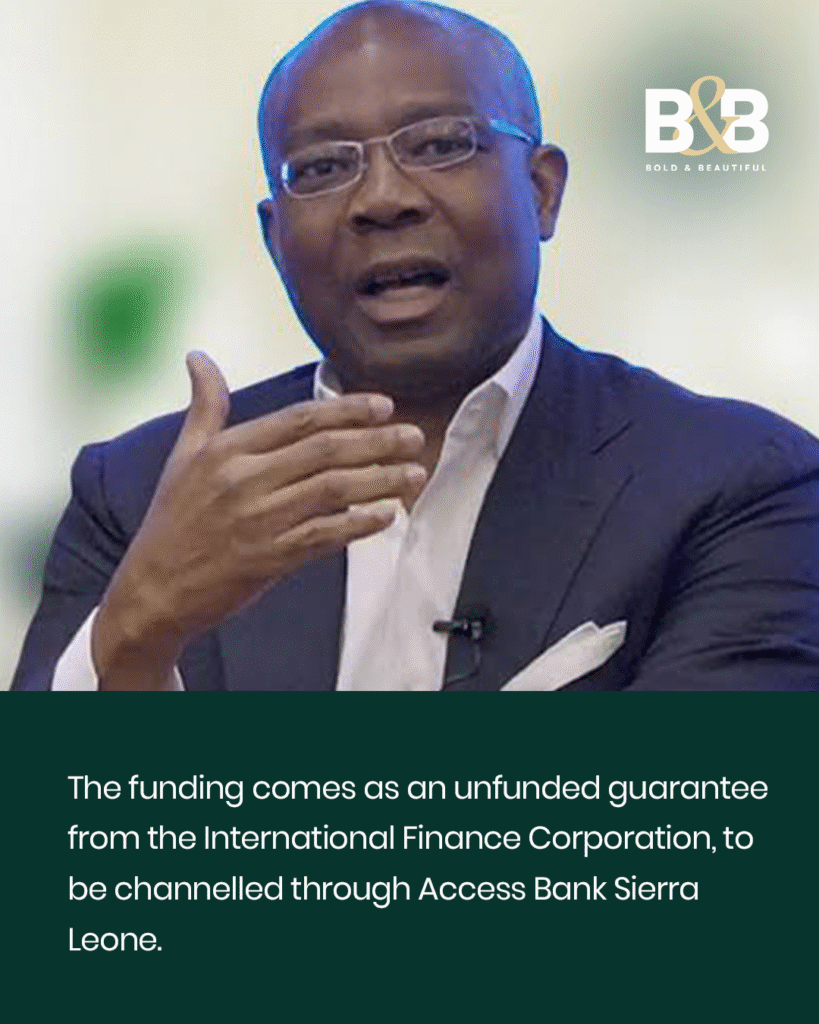
This is not philanthropy dressed as banking. It is a calculated commercial intervention. Access Holdings brings balance-sheet capacity, a regional branch network and a track record in SME finance. The IFC guarantee removes a key constraint for local lenders: fear of concentrated credit risk in fragile markets. Together they create room for lenders to extend tenors and reduce collateral demands.
Sierra Leone’s economy has been shaped by resource cycles and recovery efforts. Its SMEs suffer from small markets, weak infrastructure and costly credit. A $10 million facility will not solve those structural problems overnight, but it can change outcomes for thousands of businesses if it is deployed strategically and paired with technical support for borrowers. The aim is to convert short-term liquidity into longer-term enterprise viability.
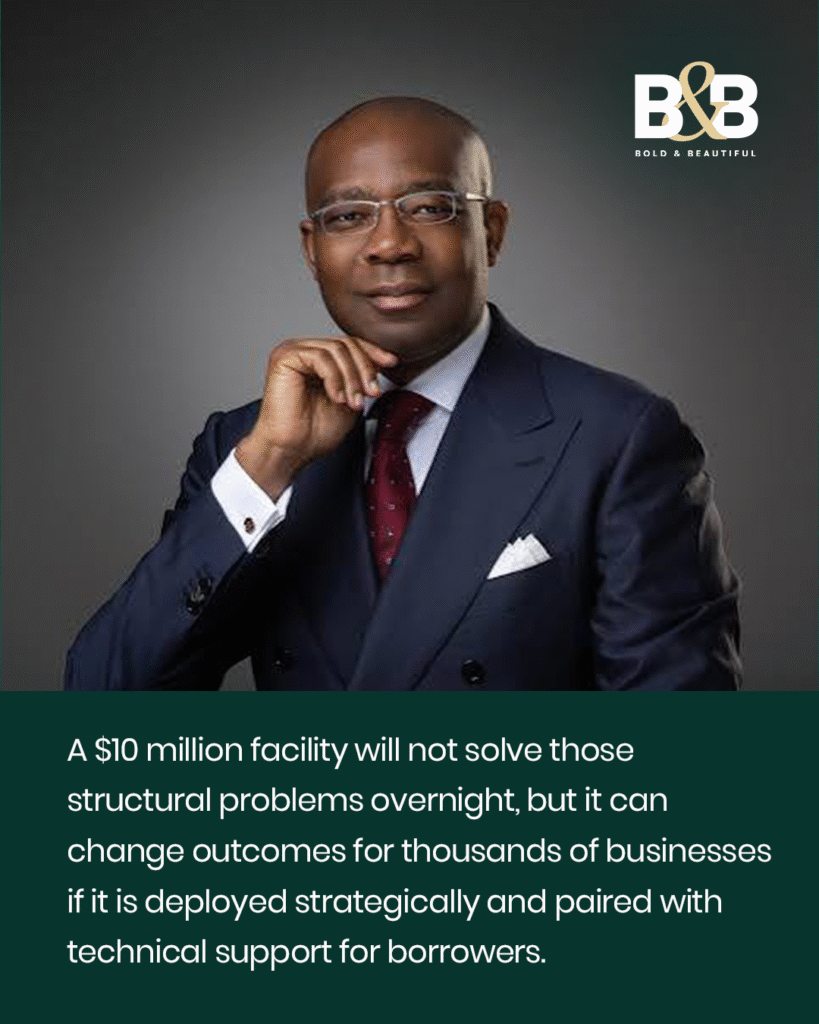
Access Bank Sierra Leone will be the operational vehicle. That subsidiary has local teams, a client base and on-the-ground knowledge that foreign lenders often lack. The challenge for Access will be rapid credit assessment and distribution at scale without degrading underwriting standards. Success will require streamlined processes, trusted local partners and an appetite to work with loans that are smaller than typical corporate tickets.
For Aig-Imoukhuede, the Sierra Leone programme fits a wider strategy. He has long argued that African financial groups must build capacity across borders so capital can circulate where it matters most. This facility signals a shift from cross-border brand presence to cross-border impact: show that a Nigerian-led bank can underwrite risk in a neighbouring market and earn returns while lifting local enterprise.
Women-led firms figure prominently in the plan. Reserving a minimum share of loans for female entrepreneurs addresses both equity and economic logic. Women in Sierra Leone run many micro and small businesses that face systemic barriers to growth. Targeted credit, paired with mentoring and simplified documentation, can multiply incomes and expand payrolls in sectors that feed household welfare.
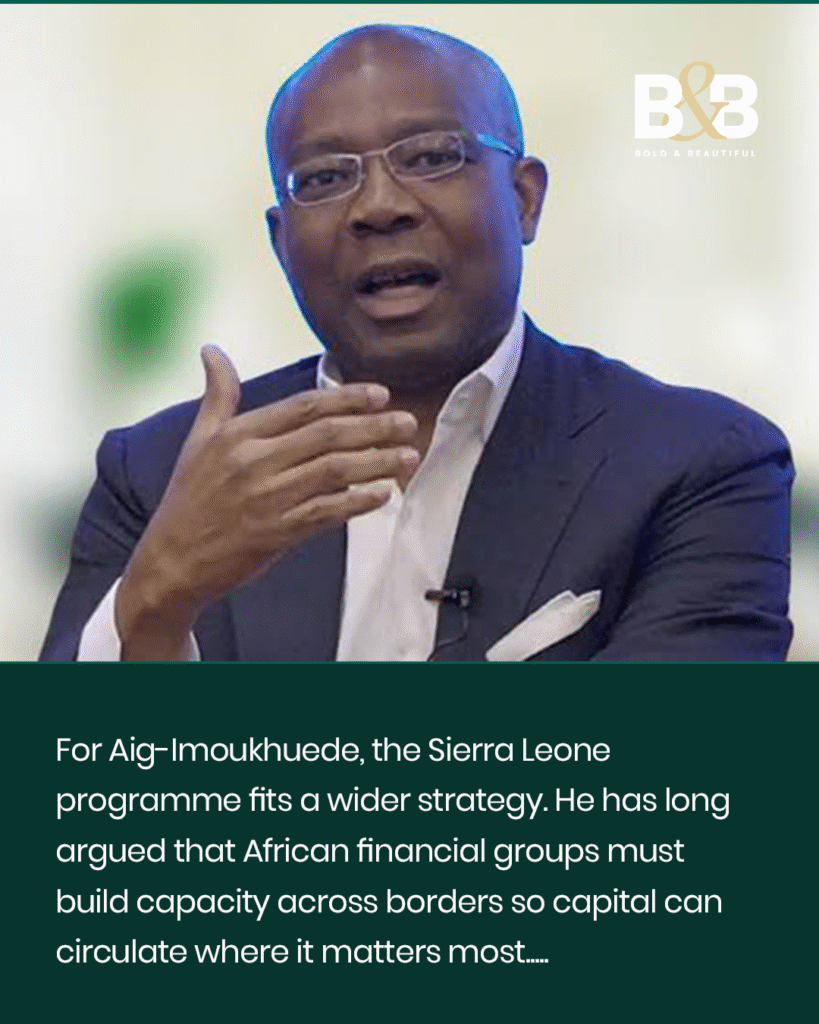
The IFC’s guarantee model also signals investor confidence. Guarantees are catalytic capital. They are meant to attract follow-on finance from development banks, impact funds and local depositors who see reduced risk in a lender’s portfolio. If the first tranche performs, the programme could scale through additional guarantees, local currency facilities, or blended finance that stitches public and private money together.
There are real execution risks. Loan default rates, currency volatility and operational bottlenecks can erode the expected impact. Access Holdings will need robust monitoring and loss triggers that protect the guarantee while allowing the bank to learn from initial portfolios. The organisation of recovery channels and quick remedial support for struggling SMEs will be critical.
Beyond lending, the initiative presents reputational stakes. Aig-Imoukhuede has positioned himself as an advocate for African-led development and institutional professionalism. A well-run programme would validate that narrative: private capital structured with public risk-bearing can deliver measurable development outcomes. A poor outcome would reinforce scepticism about exporting banking models into fragile economies.
For Sierra Leone’s business community the near-term prize is simple. Better access to credit can finance inventories, equipment and working capital that allow firms to expand and hire. For the wider region the prize is strategic: show that West African capital can flow across borders to finance growth, rather than relying solely on external development aid. If Access and IFC can demonstrate a replicable template, other markets will follow.
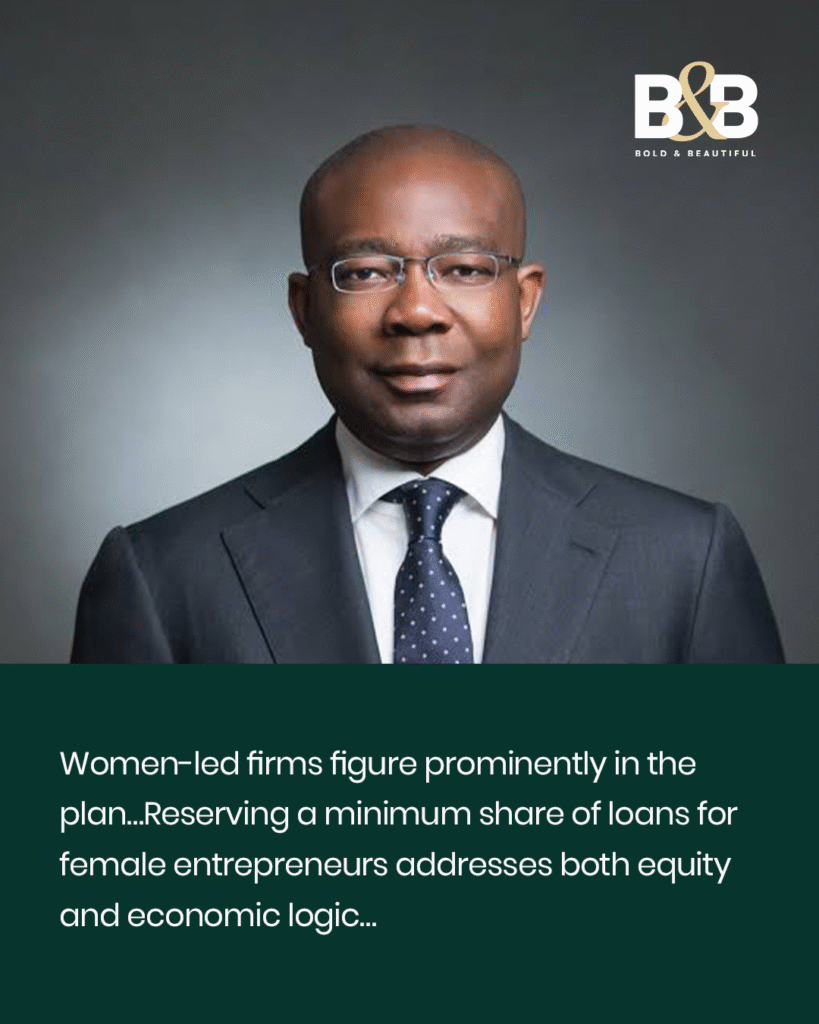
The $10 million facility is modest by global standards but large in local terms. Its value lies in multiplier effects: if it reduces risk perception, it will attract capital and strengthen local credit ecosystems. The coming months will test whether Aig-Imoukhuede’s approach combines financial discipline with development ambition, and whether Sierra Leone’s SMEs can turn a short-term guarantee into long-term scale. The results will matter for investors, regulators and the entrepreneurs who need finance to grow.





